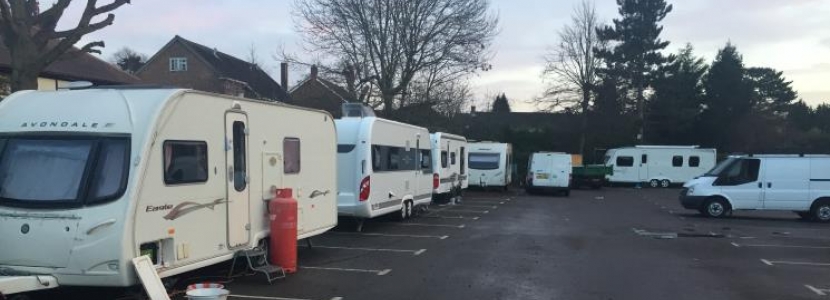
As we enter spring we are also entering the seasons for the increase in unauthorised encampments. Already over the Easter weekend we saw a number of sites, mostly on private land, across the Thames Valley.
It is almost universally the case that the public expectation of action by the police is not matched by legislation. The limited powers that the police have, especially when an encampment is on private land, is a frustration to the landowners, local communities and indeed many police officers. I fear it can also damage wider confidence in policing as the public do not necessarily understand the limited powers the police have.
Last year the Government consulted on the powers to tackle unauthorised encampments and it has now indicated it's intention to change the law to give greater powers to the police and local authorities. This is welcomed but the details will need to be scrutinised. There is an indication of some of the areas that will be considered, such as changing the threshold number of vehicles that constitutes an unauthorised encampment and extending the period before anyone can return. The devil will be in the detail however and if meaningful changes are to be brought about it will need changes in the law and a different approach from the police and local authorities.
Although we don't yet have a timescale for when proposals will be brought forward, or indeed in what form, I want to ensure that the Thames Valley is at the forefront of shaping these changes. I have written to all twenty-one of the MPs across Oxfordshire, Berkshire and Buckinghamshire asking them to meet collectively to discuss the problem of unauthorised encampments once the government proposals have been published.
In the meantime Thames Valley Police have made significant progress with local authorities in establishing a joint protocol to better coordinate the response to unauthorised encampments. The lack of transit sites in the Thames Valley is one of the issues that limits the powers that the police have at their disposal and one of the issues that I believe needs to be addressed.
I will continue to encourage the police to do everything they can to use their powers within the existing system in order to limit the harm to communities from unauthorised encampments, but the system is flawed and I welcome the opportunity being offered by the Government to change it.
The policing of unauthorised encampments is a complicated matter, usually involving civil law rather than criminal. Simply criminalising trespass is not the answer. Undoubtedly many law abiding members of the traveller community suffer significant discrimination and the police must also serve these communities. That is however no excuse to overlook breaches of the law and the undeniable harm to settled communities that can be caused by unauthorised encampments.
I have met with representatives of the traveller community, many of whom would welcome an improved relationship with the police. I will continue this dialogue and would hope this would inform improved public policy. The law abiding members of both the settled and traveller communities do not wish to see criminality go unpunished.
The system that operates at the moment is not working. Thames Valley Police will continue to do their best within the system that exists, but the reality is that not only their resources, but more importantly their powers are significantly limited in dealing with the problem - and certainly well behind the public's expectations. With the Government promising to bring forward some changes we have a fantastic opportunity to shape the system and improve it for the benefit of everyone.


